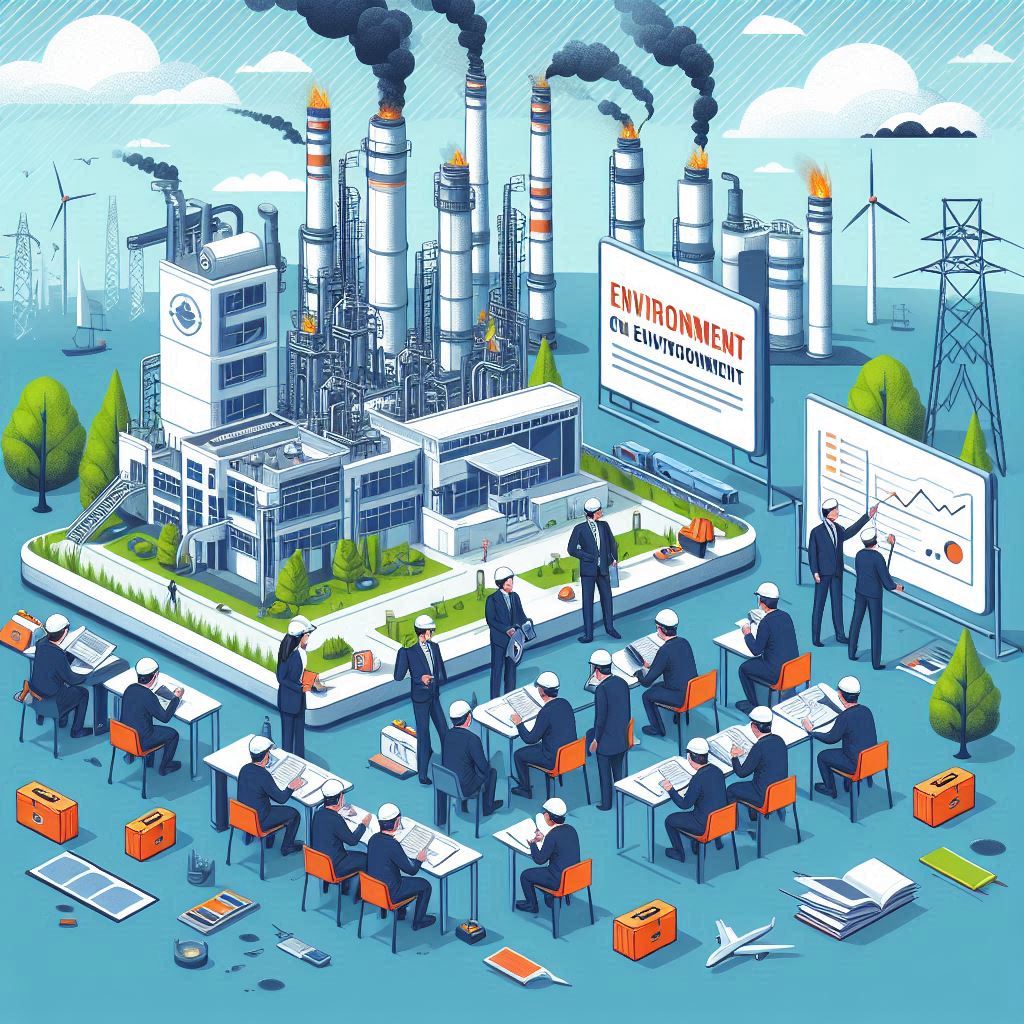Introduction:
The oil and gas industry is a vital sector of the global economy, providing the world with essential energy resources. However, the industry’s activities, including exploration, extraction, refining, and transportation, can have significant environmental impacts. These range from air and water pollution to habitat destruction, greenhouse gas emissions, and waste generation. With growing global attention on climate change and sustainability, it has become increasingly important for industry professionals to understand and mitigate these environmental risks.
Objectives:
- Understand the environmental challenges associated with oil and gas exploration, production, and transportation.
- Develop skills in environmental risk assessment and management, enabling participants to identify, evaluate, and mitigate environmental risks.
- Gain knowledge of international and industry-specific environmental regulations and learn how to ensure compliance within their organizations.
- Implement sustainable practices and technologies in oil and gas operations, focusing on emissions reduction, waste management, and water conservation.
- Conduct environmental audits and performance assessments to improve environmental outcomes in their organizations.
- Enhance their understanding of ecosystem management and biodiversity conservation, particularly in areas affected by oil and gas activities.
- Adapt operations to climate change risks and contribute to corporate sustainability goals.
- Apply practical fieldwork skills to assess environmental impacts and create comprehensive environmental management plans.
Course Outline:
Module 1: Introduction to the Oil and Gas Industry and Environmental Impact
- History and importance of the industry
- Key players in the global oil and gas sector
- Upstream, midstream, and downstream operations
- Greenhouse gas emissions
- Water and air pollution
- Waste management in exploration and production
- International environmental laws and standards
- Industry-specific regulations (e.g., EPA standards)
- Role of government bodies in environmental regulation
- Balancing economic growth and environmental protection
- Corporate social responsibility (CSR) in the oil and gas industry
- Case studies of major oil spills and their impact.
Module 2: Environmental Risk Assessment and Management
- Understanding environmental risk in oil and gas operations
- Tools and techniques for risk assessment
- Environmental Impact Assessments (EIAs)
- Pollution prevention and control
- Hazard identification and mitigation strategies
- Incident response planning.
- Monitoring systems in oil and gas operations
- Reporting and documentation standards (e.g., ISO 14001)
- In-depth analysis of past environmental disasters in oil and gas
- Lessons learned and improvements in environmental management.
Module 3: Sustainable Practices and Technologies
- Introduction to green technologies and their application
- Carbon capture, utilization, and storage (CCUS)
- Renewable energy integration in oil and gas operations
- Effective waste management strategies in oil and gas
- Technologies for waste recycling and reuse
- Zero-waste initiatives
- Water conservation techniques in oil and gas
- Produced water treatment and reuse
- Regulatory frameworks for water use in oil and gas
- Technologies for emission reduction
- Methane leak detection and repair (LDAR)
- Strategies for achieving net-zero targets.
Module 4: Environmental Auditing and Compliance
- Role of environmental audits in oil and gas operations
- Internal vs. external auditing
- Audit preparation and documentation
- Key performance indicators (KPIs) for environmental sustainability
- Benchmarking and improving environmental performance
- Navigating environmental laws and regulations
- Permitting processes and compliance requirements
- Common compliance challenges in oil and gas
- Real-world audit scenarios
- Best practices for achieving compliance.
Module 5: Biodiversity and Ecosystem Management
- Biodiversity impact of oil and gas operations
- Restoration and rehabilitation of ecosystems
- Strategies for biodiversity conservation
- Impact of offshore drilling on marine life
- Managing onshore biodiversity challenges
- Case studies of ecosystem rehabilitation projects
- Cultural and environmental considerations
- Case studies on the impact of oil and gas on local communities
- Social responsibility towards indigenous communities
- Partnerships with NGOs and environmental organizations
- Corporate environmental partnerships
- Case studies on successful environmental partnerships.
Module 6: Climate Change and Adaptation
- Impact of oil and gas on climate change
- Global climate change goals (e.g., Paris Agreement)
- Role of the oil and gas industry in mitigating climate change
- Risk mitigation strategies for climate change
- Adapting infrastructure to climate risks
- Renewable energy transitions in oil and gas
- Introduction to carbon markets
- The economics of carbon pricing and emissions trading
- Oil and gas companies’ participation in carbon markets
- Emerging trends in sustainable practices
- Future outlook for oil and gas in a low-carbon economy
- Corporate sustainability reporting and transparency.
Module 7: Practical Fieldwork and Case Studies
- Overview of practical fieldwork and environmental assessments
- Equipment and data collection techniques
- Safety protocols during fieldwork
- Conducting real-world environmental assessments at oil and gas sites
- Data analysis and reporting
- Environmental monitoring and compliance checks
- Reporting fieldwork findings
- Group presentations and feedback
- Discussion on key takeaways and improvements.
Module 8: Final Project and Evaluation
- Development of a comprehensive environmental management plan
- Team-based project on a selected oil and gas operation
- Research and data collection for the project
- Application of course concepts in project planning
- Presentation of environmental management plans
- Peer and instructor feedback
- Final course assessments and evaluations.
